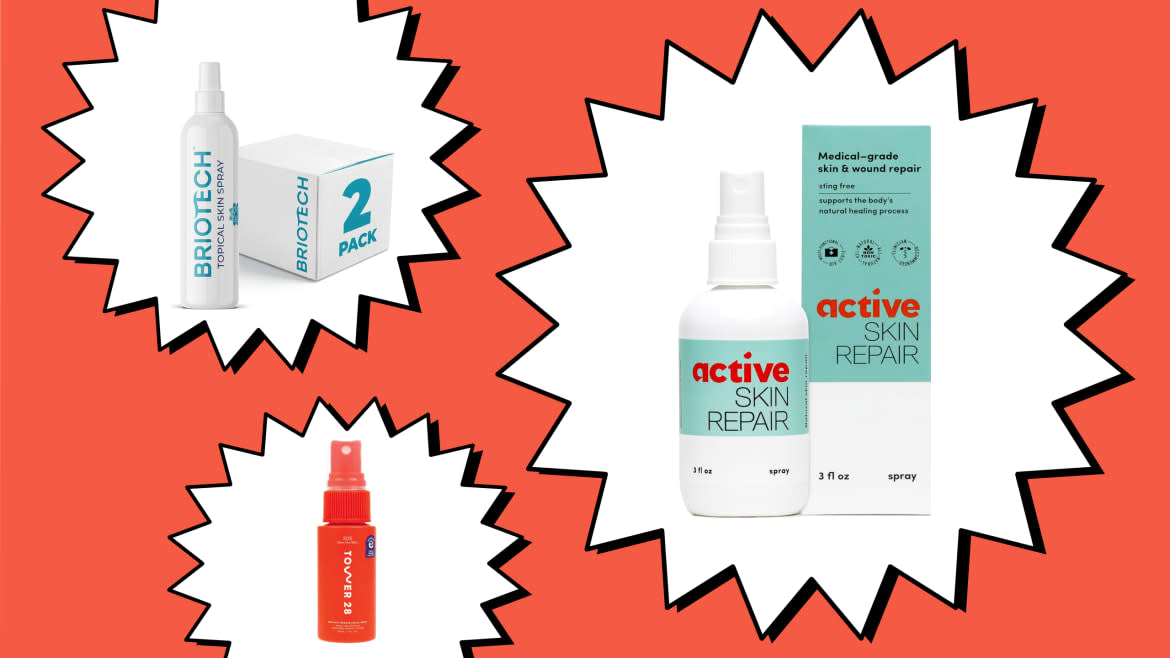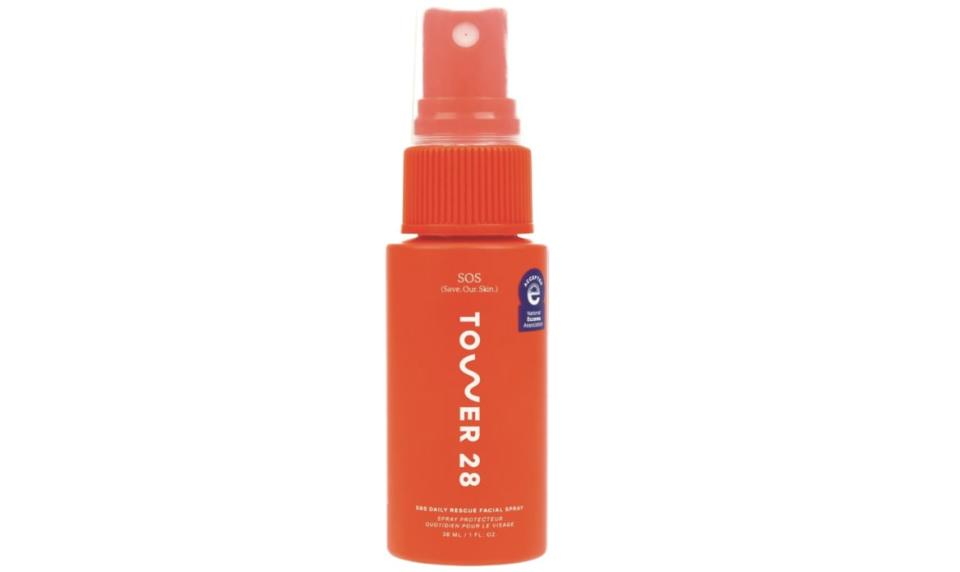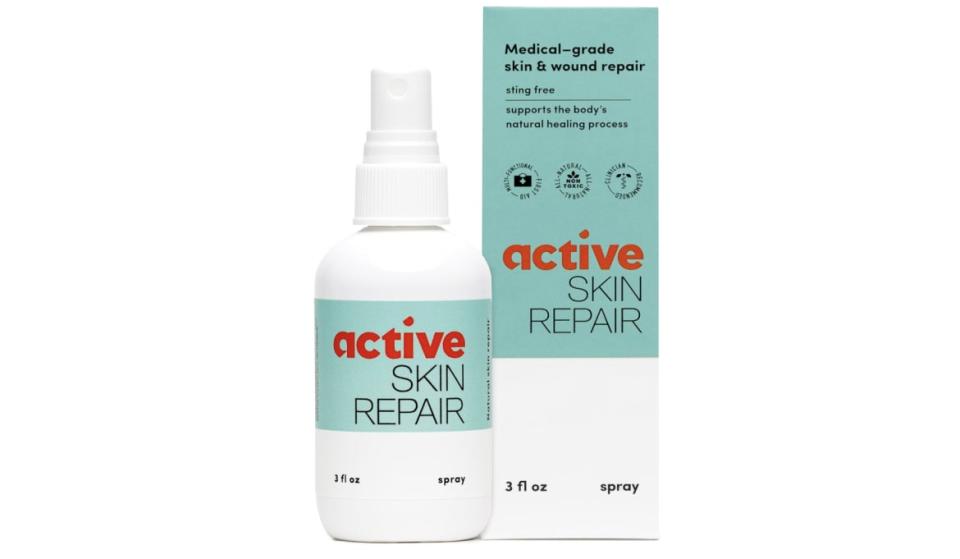Hypochlorous Acid Is Skincare’s Rising Star, but Is it Safe to Use at Home?

Scouted selects products independently. If you purchase something from our posts, we may earn a small commission.
If your TikTok algorithm has picked up your compulsive skincare content consumption like mine has, chances are you’ve encountered posts about beauty’s newest ‘unsexy’ complexion obsession: hypochlorous acid spray for skin. Hypochlorous Acid (HOCI) got on my radar a few weeks ago when an aesthetician I follow on the app (who is approaching 40 but has the skin of a 22-year-old) waxed poetic about its laundry list of skin benefits and very few side effects—apparently, even for those of us with sensitive and/or wrinkle-prone skin. The following week, I decided to catch up on some recent episodes of my favorite beauty podcast, Fat Mascara, and the hosts, two veteran beauty editors, were also singing praises about the multipurpose spray.
Some of the purported benefits of using hypochlorous acid spray on the face include instantly reducing redness, killing pore-clogging and acne-causing bacteria without overdrying, refining pores, quelling inflammation, and expediting wound healing. Naturally, it wasn’t long before I opened my Amazon app and bought a bottle for myself.
Hypochlorous acid has been used by dermatologists and medical spas for decades to sanitize patients’ skin before and after cosmetic procedures because it effectively kills bacteria, fungi, and the skin but doesn’t cause as much irritation as, say, alcohol. Until recently, though, hypochlorous acid was far from a household name in the skincare space—though the active was certainly a COVID-19 hero when hand sanitizer shortages were a thing.
As someone who deals with chronic redness and acute but severe flushing from heat exposure and even mild exercise, I was intrigued by some of the alleged superpowers that this trendy facial mist promised. Of course, I also know that, like oral antibiotics, overusing antimicrobial products topically can disrupt our skin’s microbiome, which is something I’d like to avoid at all costs. Plus, the stuff also smells like watered-down bleach, which obviously gave me pause. To get the lowdown, I asked a few experts to explain the benefits and risks.
“Hypochlorous acid is an ingredient that the body’s white blood cells naturally produce to fight infection and inflammation. It is used in skincare products for its antimicrobial, anti-inflammatory, wound-healing, and moisturizing properties,” Dr. Anar Mikailov, MD, board-certified dermatologist and co-founder of Skintensive, tells The Daily Beast. I naively assumed that because the spray had antibacterial properties, it would be drying to the skin, but it turns out it’s relatively safe for all skin types—especially those with sensitive skin and conditions like rosacea and eczema. “Those with dry, sensitive, eczema-prone skin may benefit from it as it helps keep the skin moisturized, reduce harmful bacteria on the skin, boost the skin barrier, and help accelerate skin healing.”

Board-certified Dr. Marisa Garshick agrees, adding that it can also help with acne-prone skin types and those of us who want to reduce a post-hot pilates flush. “Since hypochlorous acid helps to repair the skin, it can be used to address various skin concerns, helping to calm redness and inflammation as well as skin sensitivity,” she says. “[Plus] the spray formulation makes it a great option for post-workout.” For the record, I spritzed a few mists of hypochlorous acid spray on my skin after an hour-long heated yoga class, which turned my skin beet-red, and it worked to lift the redness in under ten minutes. See the before-and-after image for proof above!
While it’s always a good idea to check with your physician or dermatologist before introducing new skincare of any kind to your regimen, experts seem to agree using hypochlorous acid regularly is safe. “There are minimal risks when using hypochlorous acid, though as with any new product, it is always good to introduce it into a routine slowly,” Dr. Marisa Garshick says. Dr. Mikailov agrees but recommends those with sensitive skin perform a patch test before spraying all over the face and cautions against DIY-ing your own formula. “[Hypochlorous acid] Skincare products formulated by cosmetic chemists and tested for safety are safe to use at home. Do not attempt to dilute this at home from disinfectant sprays as it can cause severe skin irritation.”
Fortunately, there are plenty of properly formulated and pH-balanced hypochlorous acid skin sprays on the market, so there’s really no excuse to concoct your own version of it at home—especially since they’re relatively affordable (around $25 a bottle). Scroll through below to shop some of the best derm-approved hypochlorous acid sprays for calm, flush-free skin.
Tower 28 SOS Daily Rescue Facial Spray

Formulated specifically for sensitive skin, this non-toxic hypochlorous acid spray is the ultimate gym bag essential for keeping redness, bacteria, and pore-clogging sweat at bay.
Buy Tower 28 SOS Daily Rescue Facial Spray at Sephora, $28
Active Skin Repair First Aid Healing Skin Spray

This sting-free first aid essential can be used all over the body—including the face—to visibly calm irritation, heal wounds, and eliminate bacteria.
Buy Active Skin Repair First Aid Healing Skin Spray at Amazon, $30
Buy Active Skin Repair First Aid Healing Skin Spray at Target, $30
BRIOTECH Hypochlorous Acid Skin Spray

This is the formula I’ve been using for the past couple of weeks, and so far, it works like a charm for soothing irritation and bringing down redness post-workouts.
Buy BRIOTECH Hypochlorous Acid Skin Spray at Amazon, $25
MORE FROM SCOUTED:
I Tried the Supermodel-Approved LYMA Skincare Starter Kit—Here Are My Thoughts
These Anti-Wrinkle Serums Soften Fine Lines and Combat Sun Damage
Skip the Monthly Spa Fees and Invest in a Home Sauna Instead
Get the Daily Beast's biggest scoops and scandals delivered right to your inbox. Sign up now.
Stay informed and gain unlimited access to the Daily Beast's unmatched reporting. Subscribe now.

